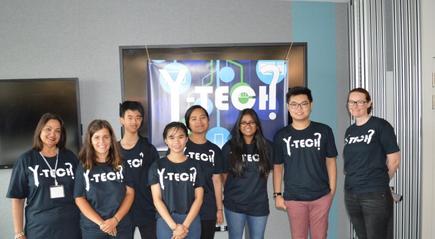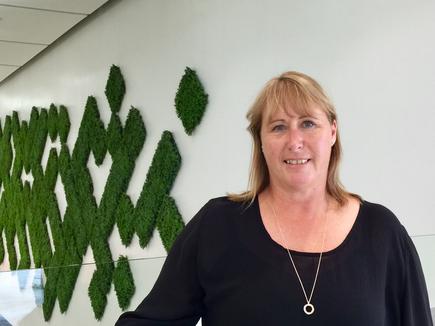Mentoring in the digital era
- 01 May, 2018 07:00
The moment you talk about mentoring, the connotation automatically is formality, process, and that it is time consuming. We have to make it accessible and easy for people.
“Try to get a mentor early in your life,” is a constant advice Edwina Mistry tells students in various forums where she speaks as director of CreateOps and and executive director of TechWomen at NZTech.
Mentoring can begin at the start of one’s career, and even while still a student, says Mistry.
She encourages today’s students to network and go to industry events so they will have a deep understanding of the sector.
One of her advocacies is encouraging ICT professionals to mentor students. “ICT professionals should be open to it,” she says, and parents should encourage their children to look for mentors.
Sixty per cent of professionals are parents, so if they themselves start it, they are going to build a network of mentors.
But she believes ‘mentoring’ may be too formal a word to be used with some students.
Role modelling
“The moment you talk about mentoring, the connotation automatically in someone’s mind is formality, process, and that it is time consuming,” says Mistry.
“We have to make it accessible and make it easy for people.”
“Let us call it role modelling,” says Mistry. “It is a better way to do it, and we should encourage young ones right from the time they are at school to look for role models they can talk to.”
She says the students can request a possible mentor for a coffee meeting.
“Initially, it starts with 10 minutes. What happens is the conversation can go to 25 to 30 minutes, and you can take it from there,” she says.
“You will be to say, ‘Maybe we can catch up in another few weeks time or send me any questions you have.’
“That is an informal way of starting something. It goes a long way to building lasting relationships.”
For Mistry, another form of mentoring is through welcoming students to join ICT leaders and their teams for a day.
She says this is the concept behind ShadowTech, which connects female students in year 9 to 11 with women working in the tech sector, who act as mentors. Secondary school students get to spend a day with women in technology roles, experiencing a day in the life of an IT professional.
Mistry started the programme when she was industry and community engagement manager with the Manukau Institute of Technology in 2014.
Since 2017, the programme has been delivered in partnership with NZTech, where Mistry is now director of the TechWomen community programme. Her work on ShadowTech saw her win the top award for the 2017 CIO100's ICT-enabled community programme category.
Next month, ShadowTech Day will be held nationwide - in Wellington, Christchurch, Auckland, Palmerston North, Hamilton and Dunedin.
A student who participated in Shadowtech last year told her she realised IT “isn't scary and not as serious as I thought it would be... Spending the day with my mentor has made me a lot more interested in a career in IT.”
One of the mentors, on the other hand, said hosting the young students “increased staff morale on the day. We feel our business benefited from brand awareness - and possible future employees!”

Investing in our tamariki
Vivian Chandra, chief digital officer at OMGTech!, notes by 2030, all year one students will begin entering into a workforce that will look entirely different from the one we know today.
“Thirty-eight percent of the jobs that currently exist will be gone, and students will have to reinvent themselves five or more times—picking up new skills—to stay competitive,” says Chandra.
“The one constant we know is that all of these future jobs will have digital technologies as an essential component.
“To equip our children for this world we must get them confident with exploring new technologies and develop a sense of curiosity and positivity about technologies."
She says this is why OMGTech exists, to give all Kiwi children access to technologies that will share their future.
She says some OMG programmes are also aimed at young children, aged eight to 12 years old.

By being comfortable with the latest technologies today, our tamariki will be well equipped to pick up the new stuff when it comes or when they invent it.
"They don’t have preconceived notions about what technology is. They find it fun, exciting and they play with cool stuff.”
“As people who work in the tech industry, we don’t know 100 per cent what that technology looks like right now, we hope it involves mind control and hoverboards but who knows,” she says.
“But, by being comfortable with the latest technologies today, our tamariki will be well equipped to pick up the new stuff when it comes or when they invent it.”
While we want to be here for all kids, the reality is that whole sections of our society have traditionally missed out, she says.
“OMGTech! works in the high deprivation areas or lower socio-economic areas and we also focus our attention on kids that identify as girls or gender non-binary,” she explain.
“We work hard in impoverished areas, and we try to get funding and staff volunteers so we can work in these areas.”
“We have hundreds of people who all work in the tech industry, and not only are they expert in a wide range of technology, by their very nature, they are inspirational role models, infusing a love of technology in kids who may never have had any exposure to it in the past,” she says.
She says more than four and a half thousand children have attended their programmes,and over half of these children are girls.
One of OMG’s latest programmes is the Mana Tangata, where 30 students aged 14 to 18 from underserved communities around New Zealand are paired with an industry mentor.
“Our work focuses on inclusion,” she explains. “We work with students who have been excluded because of ethnicity, cultural background, sexual orientation or gender identity.”
“Some of these kids have not left their towns,” she says, and hearing someone from a company like Microsoft, for instance, talk about a technology conference overseas, “opens up new ideas, a new world for them.”
Strength in numbers
Once a year, Karen Vincent takes a student with her to her meetings.
Vincent, who is director at ACSData, does this as part of being a mentor for ShadowTech.
“I try and pick my female customers,” says Vincent, "and the reason I do that is because I want them to see women who have achieved their career goals.”
The students see the diverse roles that utilise technology.
“At the end of the day, when they can say, ‘I can do that too’, then we have achieved our goal.”

Vincent is also involved in the NZTech Women mentoring programme. She says this programme has two streams, one on leadership and the other on career growth. She is involved in the latter.
The women they mentor are aged 22 to 50 and work across various industries. “We give them individual guidance, but also talk to them as a group.”
“There is a variance of ages so they help each other,” she adds. “While we do the mentoring, they also do peer assistance.”
Vincent came into IT while working as an executive assistant for a consulting company.
This was in the 80s and as part of her job, had to learn a lot of software applications, then trained other staff.
She has since then worked in various multinational technology companies including Toshiba, Dell, Lenovo, EMC and IBM, before joining ACSData.
Vincent says it is important to have the balance of having both male and female views in any organisation.
She says male mentors can help ensure this balance. They can advice the men they are mentoring to encourage more women to progress their career within the organisation.
“They can say, ‘have you thought of having a woman in that role? They will provide another perspective from the other males in the room.’”



